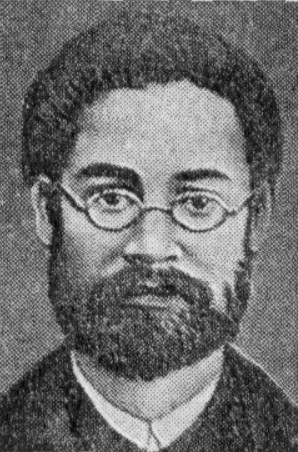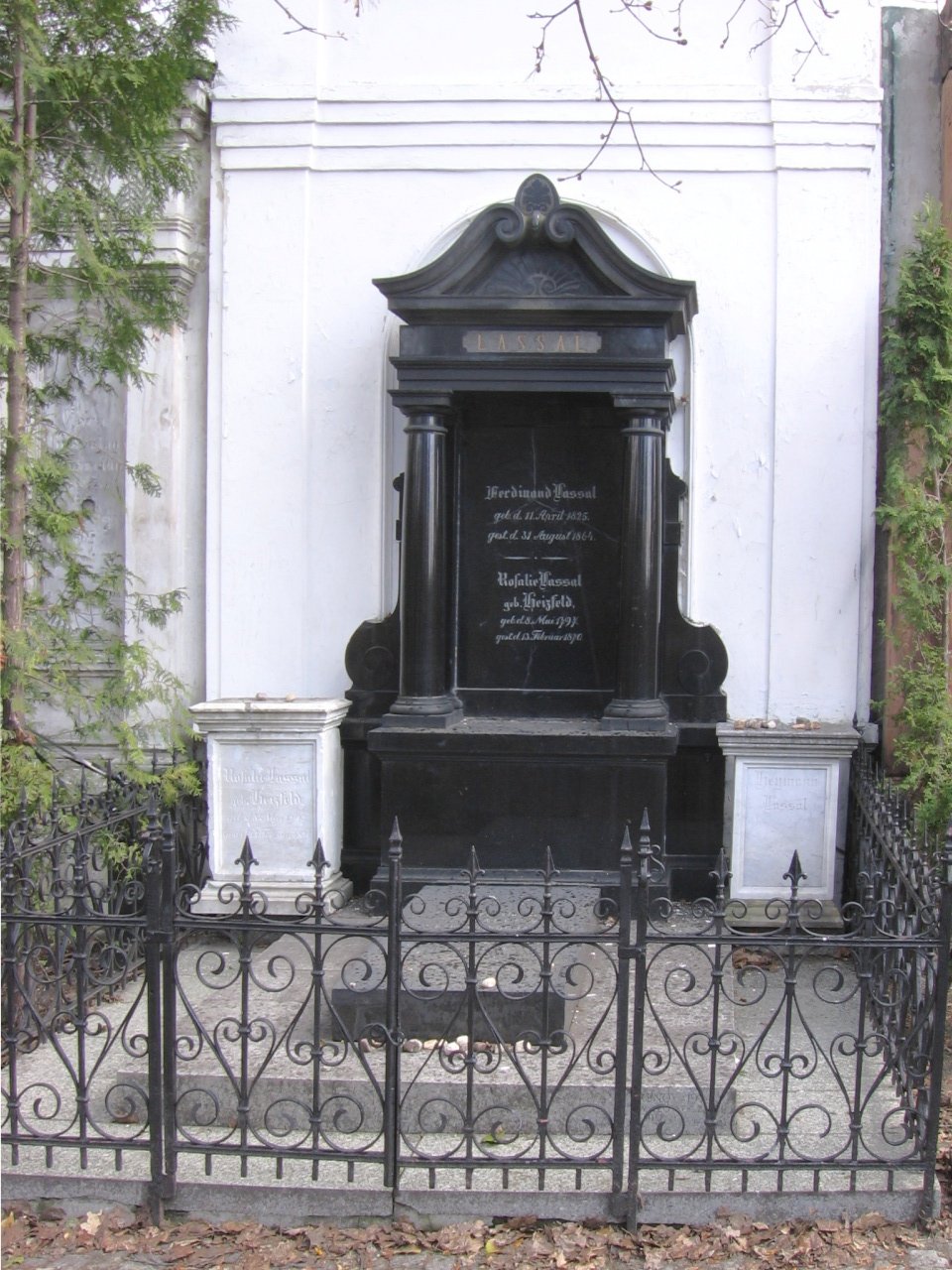|
Arkady Kremer
Arkadi Kremer ( yi, אַרקאַדי קרעמער; also known as Aleksandr Kremer or Solomon Kremer; 1865–1935) was a Russian socialist leader known as the 'Father of the Bund' (the General Jewish Workers' Union in Lithuania, Poland and Russia). This organisation was instrumental in the development of Russian Marxism, the Jewish labour movement and Jewish nationalism. Life Arkadi Kremer was born in Švenčionys in Vilna Governorate, Russian Empire (in present-day Lithuania), into a religious family. At age 12 he moved to Vilna, where he attended ''Realschule'' (Secondary School). Kremer subsequently studied at the St. Petersburg Technological Institute and the Riga Polytechnic. In the course of his studies, Kremer became involved in radical student politics and became involved in the Polish Marxist organisation 'Proletariat'. He was first arrested in 1889. After some time in prison he was condemned to administrative exile and banned from St. Petersburg. He returned to Vilna in ... [...More Info...] [...Related Items...] OR: [Wikipedia] [Google] [Baidu] |
Kremer Aron
Kremer is a German, Dutch, and Jewish (Ashkenazic) surname cognate to Kramer (surname), Kramer. at ancestry.com, sourced to Dictionary of American Family Names ©2013, Oxford University Press. __NOTOC__ People *Amy Kremer (born 1970/71), American Tea Party political activist *Andrea Kremer (b. 1959), American television sports journalist *Andrzej Kremer (1961–2010), Polish lawyer and diplomat, Deputy Minister of Foreign Affairs *Anje Kremer (b. 1943), Dutch-born New Zealand speed skater *Anne Kremer (b. 1975), Luxembourgish tennis player *Annemarie Kremer (b. 1974), Dutch operatic soprano *Arkadi Kremer (1865–1935), Russian socialist leader, founder of the Jewish Labour Bund, husband of Pati Kremer *Armin Kremer (b. 1968), German rally driver *Bob Kremer (b. 1936), American (Nebraska) politician ...[...More Info...] [...Related Items...] OR: [Wikipedia] [Google] [Baidu] |
Ferdinand Lassalle
Ferdinand Lassalle (; 11 April 1825 – 31 August 1864) was a Prussian-German jurist, philosopher, socialist and political activist best remembered as the initiator of the social democratic movement in Germany. "Lassalle was the first man in Germany, the first in Europe, who succeeded in organising a party of socialist action", or, as Rosa Luxemburg put it: "Lassalle managed to wrestle from history in two years of flaming agitation what needed many decades to come about." As agitator he coined the terms night-watchman state and iron law of wages. Biography Early life Lassalle was born Ferdinand Johann Gottlieb Lassal on 11 April 1825 in Breslau, Silesia (now Wrocław, Poland). His father Heyman Lassal was a Jewish silk merchant and intended his son for a business career, sending him to the commercial school at Leipzig. However, Lassalle soon transferred to university, studying first in the University of Breslau and later at the University of Berlin. There, Lassalle studied ... [...More Info...] [...Related Items...] OR: [Wikipedia] [Google] [Baidu] |
People From Sventsyansky Uyezd
A person ( : people) is a being that has certain capacities or attributes such as reason, morality, consciousness or self-consciousness, and being a part of a culturally established form of social relations such as kinship, ownership of property, or legal responsibility. The defining features of personhood and, consequently, what makes a person count as a person, differ widely among cultures and contexts. In addition to the question of personhood, of what makes a being count as a person to begin with, there are further questions about personal identity and self: both about what makes any particular person that particular person instead of another, and about what makes a person at one time the same person as they were or will be at another time despite any intervening changes. The plural form "people" is often used to refer to an entire nation or ethnic group (as in "a people"), and this was the original meaning of the word; it subsequently acquired its use as a plural form of ... [...More Info...] [...Related Items...] OR: [Wikipedia] [Google] [Baidu] |
People From Švenčionys
A person ( : people) is a being that has certain capacities or attributes such as reason, morality, consciousness or self-consciousness, and being a part of a culturally established form of social relations such as kinship, ownership of property, or legal responsibility. The defining features of personhood and, consequently, what makes a person count as a person, differ widely among cultures and contexts. In addition to the question of personhood, of what makes a being count as a person to begin with, there are further questions about personal identity and self: both about what makes any particular person that particular person instead of another, and about what makes a person at one time the same person as they were or will be at another time despite any intervening changes. The plural form "people" is often used to refer to an entire nation or ethnic group (as in "a people"), and this was the original meaning of the word; it subsequently acquired its use as a plural form of ... [...More Info...] [...Related Items...] OR: [Wikipedia] [Google] [Baidu] |
1935 Deaths
Events January * January 7 – Italian premier Benito Mussolini and French Foreign Minister Pierre Laval conclude an agreement, in which each power agrees not to oppose the other's colonial claims. * January 12 – Amelia Earhart becomes the first person to successfully complete a solo flight from Hawaii to California, a distance of 2,408 miles. * January 13 – A plebiscite in the Territory of the Saar Basin shows that 90.3% of those voting wish to join Germany. * January 24 – The first canned beer is sold in Richmond, Virginia, United States, by Gottfried Krueger Brewing Company. February * February 6 – Parker Brothers begins selling the board game Monopoly in the United States. * February 13 – Richard Hauptmann is convicted and sentenced to death for the kidnapping and murder of Charles Lindbergh Jr. in the United States. * February 15 – The discovery and clinical development of Prontosil, the first broadly effective antibiotic, is published in a se ... [...More Info...] [...Related Items...] OR: [Wikipedia] [Google] [Baidu] |
1865 Births
Events January–March * January 4 – The New York Stock Exchange opens its first permanent headquarters at 10-12 Broad near Wall Street, in New York City. * January 13 – American Civil War : Second Battle of Fort Fisher: United States forces launch a major amphibious assault against the last seaport held by the Confederates, Fort Fisher, North Carolina. * January 15 – American Civil War: United States forces capture Fort Fisher. * January 31 ** The Thirteenth Amendment to the United States Constitution (conditional prohibition of slavery and involuntary servitude) passes narrowly, in the House of Representatives. ** American Civil War: Confederate General Robert E. Lee becomes general-in-chief. * February ** American Civil War: Columbia, South Carolina burns, as Confederate forces flee from advancing Union forces. * February 3 – American Civil War : Hampton Roads Conference: Union and Confederate leaders discuss peace terms. * February 8 ... [...More Info...] [...Related Items...] OR: [Wikipedia] [Google] [Baidu] |
Allies Of World War I
The Allies of World War I, Entente Powers, or Allied Powers were a coalition of countries led by France, the United Kingdom, Russia, Italy, Japan, and the United States against the Central Powers of Germany, Austria-Hungary, the Ottoman Empire, Bulgaria, and their colonies during the First World War (1914–1918). By the end of the first decade of the 20th century, the major European powers were divided between the Triple Entente and the Triple Alliance. The Triple Entente was made up of France, Britain, and Russia. The Triple Alliance was originally composed of Germany, Austria–Hungary, and Italy, but Italy remained neutral in 1914. As the war progressed, each coalition added new members. Japan joined the Entente in 1914 and after proclaiming its neutrality at the beginning of the war, Italy also joined the Entente in 1915. The term "Allies" became more widely used than "Entente", although France, Britain, Russia, and Italy were also referred to as the Quadruple Entente ... [...More Info...] [...Related Items...] OR: [Wikipedia] [Google] [Baidu] |
First World War
World War I (28 July 1914 11 November 1918), often abbreviated as WWI, was one of the deadliest global conflicts in history. Belligerents included much of Europe, the Russian Empire, the United States, and the Ottoman Empire, with fighting occurring throughout Europe, the Middle East, Africa, the Pacific, and parts of Asia. An estimated 9 million soldiers were killed in combat, plus another 23 million wounded, while 5 million civilians died as a result of military action, hunger, and disease. Millions more died in genocides within the Ottoman Empire and in the 1918 influenza pandemic, which was exacerbated by the movement of combatants during the war. Prior to 1914, the European great powers were divided between the Triple Entente (comprising France, Russia, and Britain) and the Triple Alliance (containing Germany, Austria-Hungary, and Italy). Tensions in the Balkans came to a head on 28 June 1914, following the assassination of Archduke Franz Ferdina ... [...More Info...] [...Related Items...] OR: [Wikipedia] [Google] [Baidu] |
Revolution Of 1905
The Russian Revolution of 1905,. also known as the First Russian Revolution,. occurred on 22 January 1905, and was a wave of mass political and social unrest that spread through vast areas of the Russian Empire. The mass unrest was directed against the Tsar, nobility, and ruling class. It included worker strikes, peasant unrest, and military mutinies. In response to the public pressure, Tsar Nicholas II enacted some constitutional reform (namely the October Manifesto). This took the form of establishing the State Duma, the multi-party system, and the Russian Constitution of 1906. Despite popular participation in the Duma, the parliament was unable to issue laws of its own, and frequently came into conflict with Nicholas. Its power was limited and Nicholas continued to hold the ruling authority. Furthermore, he could dissolve the Duma, which he often did. The 1905 revolution was primarily spurred by the international humiliation as a result of the Russian defeat in the Russo-Japa ... [...More Info...] [...Related Items...] OR: [Wikipedia] [Google] [Baidu] |
Russian Social-Democratic Workers' Party
The Russian Social Democratic Labour Party (RSDLP; in , ''Rossiyskaya sotsial-demokraticheskaya rabochaya partiya (RSDRP)''), also known as the Russian Social Democratic Workers' Party or the Russian Social Democratic Party, was a socialist political party founded in 1898 in Minsk (then in Northwestern Krai of the Russian Empire, present-day Belarus). Formed to unite the various revolutionary organizations of the Russian Empire into one party, the RSDLP split in 1903 into Bolsheviks ("majority") and Mensheviks ("minority") factions, with the Bolshevik faction eventually becoming the Communist Party of the Soviet Union. History Origins and early activities The RSDLP was not the first Russian Marxist group; the Emancipation of Labour group had been formed in 1883. The RSDLP was created to oppose the revolutionary populism of the Narodniks, which was later represented by the Socialist Revolutionary Party (SRs). The RSLDP was formed at an underground conference in Minsk in Mar ... [...More Info...] [...Related Items...] OR: [Wikipedia] [Google] [Baidu] |
Poale Zion
Poale Zion (also spelled Poalei Tziyon or Poaley Syjon, meaning "Workers of Zion") was a movement of Marxist–Zionist Jewish workers founded in various cities of Poland, Europe and the Russian Empire in about the turn of the 20th century after the Bund rejected Zionism in 1901. Formation and early years Ideology The key features of the ideology of early Poale Zion were acceptance of the Marxist view of history with the addition of the role of nationalism, which theorist Ber Borochov, a leader of Poale Zion, believed could not be ignored as a factor in historical development. A Jewish proletariat would come into being in the Land of Israel, according to Poale Zion, and would then take part in the class struggle. These views were set out in Borochov's ''Our Platform'', published in 1906. Early parties and organisations Poale Zion parties and organisations were started across the Jewish diaspora in the early 20th century. A branch of Poale Zion came into existence in Ne ... [...More Info...] [...Related Items...] OR: [Wikipedia] [Google] [Baidu] |


_1938.jpg)


_-_POALEI_ZION.jpg)